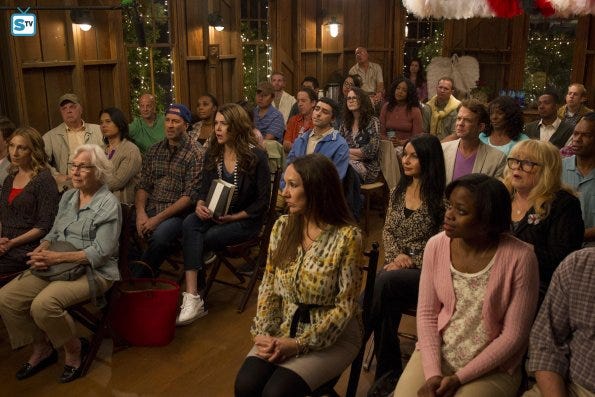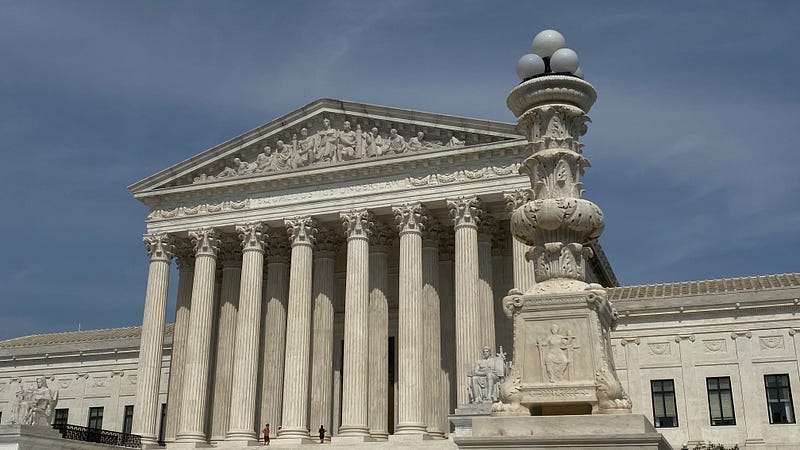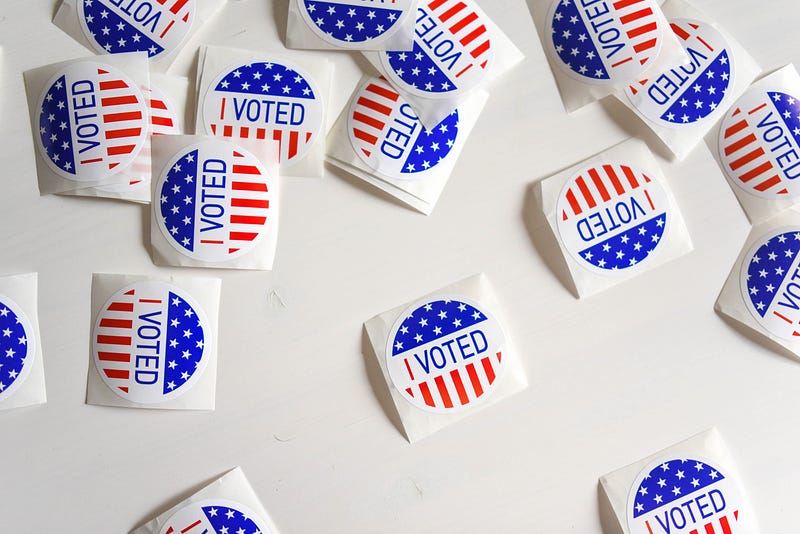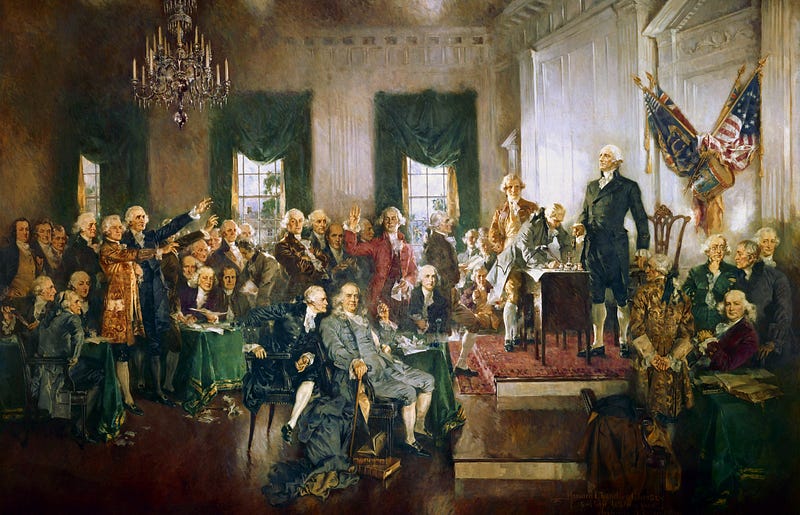A Discussion of Oliver DeMille’s 1913 Chapter 10 “Solution #3: Tribal Leaders”
In Oliver DeMille’s third chapter on solutions, he is calling for tribal leaders to lead the new turning point towards freedom.
The true freedom system includes establishing as the most basic unit of society — next to the family — small government councils that are small enough to include all adults in the decision-making meetings for major choices…These councils make decision by majority vote after open discussion. They also appoint mayors/chiefs, law enforcement leaders, judges, and other personnel. All of these officials report directly to the full council of all adults and can be removed by the council. (p. 132)
The first thing that popped in my mind was the early 2000’s TV show, Gilmore Girls. One of the recurring features were the weekly town meetings where the whole town attended meetings led by the town councilman, Taylor Doose.
DeMille’s point is that our federal and state governments can only be successful if we have active participation by the adults at the local level.
He cites an example he used in teaching where he asked the students to diagram the American government model. (p. 129) He says the typical answer started with the federal government, showing the three branches of government.
If prompted for more, some will add a similar diagram at the state level. He would push them farther by asking what level of government appeared first in the American Colonies. Then they acknowledge local government but often keep a three branch model like the federal government.
Instead, the local governments of the early days in America were like the town council of Gilmore Girls with broad adult participation.
The first constitutions and governments in America were local, and there were hundreds of them. These documents were the basis of later state constitutions, and they were also the models in which early Americans learned to actively govern themselves. Without them, the state constitutions could never have been written. Without these local and state constitutions, the U.S. Constitution would have been very, very different. In short, these local constitutions and governments were, and are, the basis of American freedoms and the whole system. (p 130)
Of course he acknowledges that as you move up to larger areas you do need the representative model we have at the state and federal levels, but his point is that the system only works if people are directly involved at the local level.
In this model, every adult citizen is formally a government official, with the result that all citizens study the government system, their role in it, the issues and laws and cases, and think like leaders. They learn leadership by leading. Without this participatory government system at the local levels, as history has shown, freedom is eventually lost in all societies. (p. 133)
It paints a nice picture but how doable is this? I ask as I live in a city of over six million in its metro area and over two million in the city putting it in the top five in the nation.
When I visit smaller towns I can imagine this working. And I can see his point that having all participate increases their sense of responsibility. Rather than going to government to get services, you are a part of the government.
And without that way of thinking, we become the ruled by the rulers at the state and federal levels. The idea that they have powers only because we have granted them, temporarily, gets lost.
They become the holders of power rather than the people. People only have the freedoms they grant as opposed to knowing they are born with inalienable rights.
DeMille again notes that we only need a few to be leaders at the local level because not everyone will engage.
He ties his three solutions together.
Another, more simple, way to describe tribal leadership is this: leaders who build community by setting the example of successful entrepreneurship, voracious reading and independent thinking, and helping others do the same. (p. 129)
I do see his point — we need strong communities that build the social and cultural capital for loving, appreciating and understanding freedom. Without that, the power hungry at the top will continue to take more and more of our freedoms.
A book I use with my graduate students, The Evolution of Economic Systems, defines an economic system as having three parts: the economy, the polity and the civil society. The economy is governed by the market, the polity is governed by the state, and the civil society is governed by the community.
The community is the realm most easily eroded by either the market or the state but ultimately the economic system fails if the community fails. It takes a strong community of people with a common interest or vision to create the kind of people that can create success in the economy and polity.
I think that is what DeMille’s solution is touching on. The deterioration of community in the US, a loss of belonging and involvement at the local level, is creating a society that is unable to preserve freedom and resist the inevitable forces of tyranny that come from the top.
Reference: DeMille, Oliver, 2012. “Solution #3: Tribal Leaders” Chapter 10 of 1913, Obstacles Press, Inc., Flint, Michigan.




